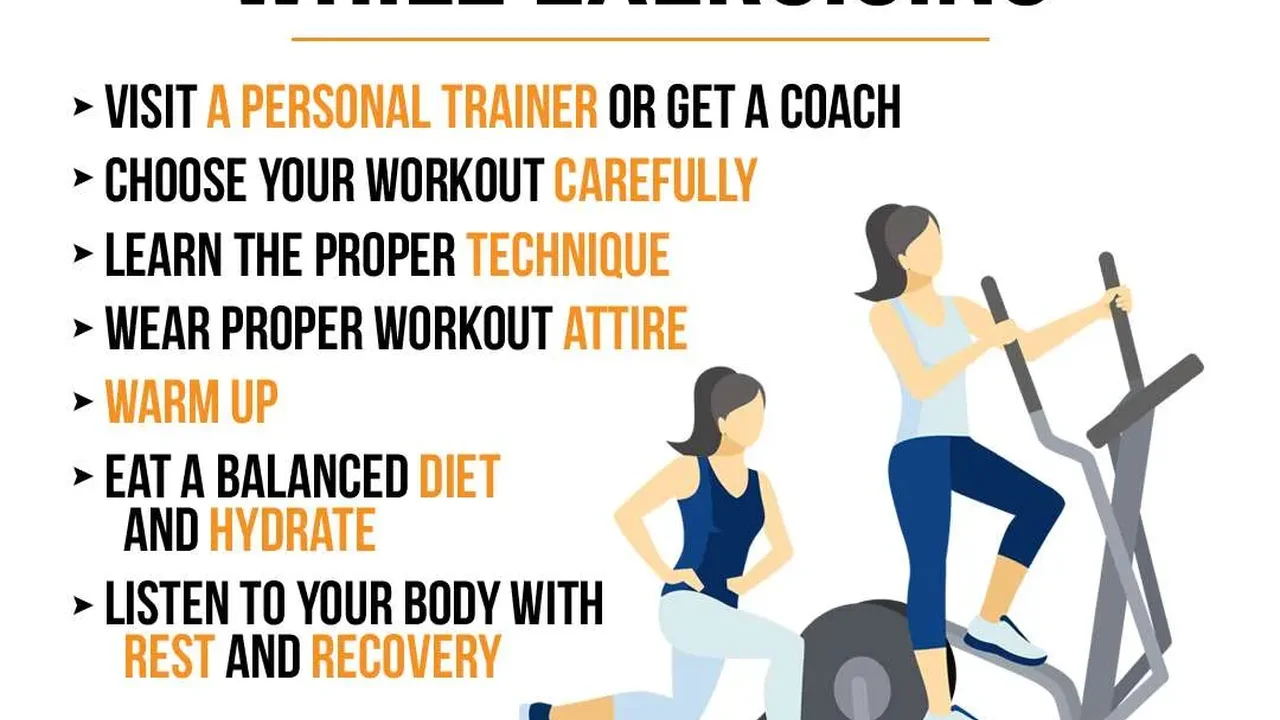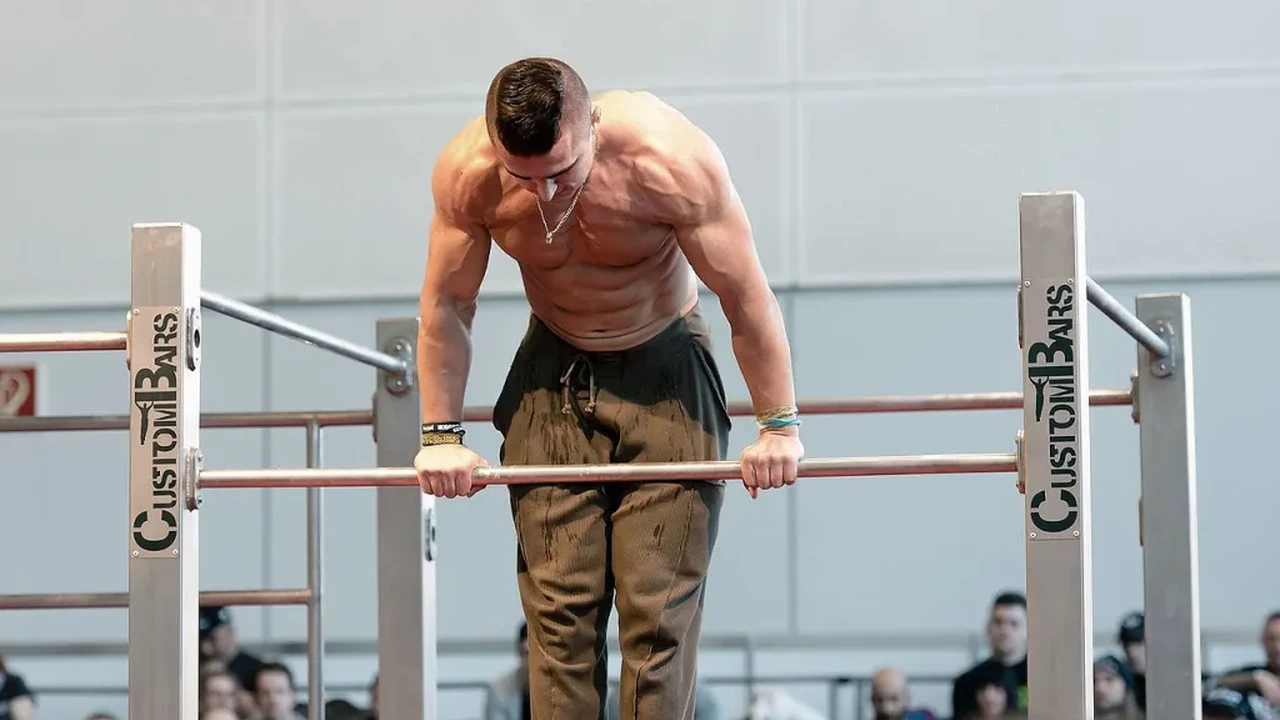Common Nutrition Mistakes for Street Workout

Fueling Your Street Workout Performance The Ultimate Guide
Street workout, also known as calisthenics, demands a lot from your body. It's not just about building strength; it's about endurance, agility, and control. To truly excel, you need the right fuel. This isn't just about eating whatever you want; it's about understanding the specific nutritional needs of a street workout athlete and tailoring your diet accordingly. Let's dive deep into how to optimize your nutrition for peak performance.
Understanding Macronutrients for Calisthenics Athletes
Macronutrients – protein, carbohydrates, and fats – are the building blocks of your diet. Each plays a crucial role in fueling your workouts and supporting recovery.
Protein The Muscle Builder and Repairer
Protein is essential for muscle growth and repair. Street workout puts a lot of stress on your muscles, so adequate protein intake is crucial. Aim for 1.6-2.2 grams of protein per kilogram of body weight per day. Good sources include lean meats, poultry, fish, eggs, dairy, and plant-based options like beans, lentils, and tofu.
For example, if you weigh 70 kg, you should aim for 112-154 grams of protein daily. This could look like a grilled chicken breast (around 40g protein), a cup of Greek yogurt (around 20g protein), and a serving of lentils (around 18g protein) spread throughout the day.
Carbohydrates The Primary Energy Source for Street Workout
Carbohydrates are your body's primary source of energy. During intense street workout sessions, your body relies on carbohydrates to fuel your muscles. Choose complex carbohydrates like whole grains, fruits, and vegetables over simple sugars. These provide sustained energy release and prevent energy crashes.
Think of complex carbs as slow-burning fuel. Oats for breakfast, brown rice with lunch, and sweet potatoes with dinner are all excellent choices. Aim for 3-5 grams of carbohydrates per kilogram of body weight per day, adjusting based on your training intensity.
Fats Essential for Hormone Production and Overall Health
Fats are often misunderstood, but they are vital for hormone production, nutrient absorption, and overall health. Focus on healthy fats like those found in avocados, nuts, seeds, and olive oil. Avoid excessive amounts of saturated and trans fats.
Healthy fats support hormone production, which is crucial for muscle growth and recovery. A handful of almonds, a tablespoon of olive oil on your salad, or half an avocado are easy ways to incorporate healthy fats into your diet. Aim for 0.8-1 gram of fat per kilogram of body weight per day.
Micronutrients Vitamins and Minerals for Optimal Performance
Micronutrients, including vitamins and minerals, are essential for various bodily functions, including energy production, immune function, and muscle recovery. A deficiency in any micronutrient can hinder your performance and recovery.
Key Vitamins for Street Workout Athletes
Vitamins like Vitamin D, Vitamin C, and B vitamins are particularly important for street workout athletes. Vitamin D supports bone health and muscle function, Vitamin C boosts the immune system and aids in collagen production, and B vitamins are essential for energy production.
Consider supplementing with Vitamin D, especially if you live in a region with limited sunlight. Incorporate citrus fruits, berries, and leafy greens into your diet to ensure adequate Vitamin C intake. Whole grains, meat, and eggs are good sources of B vitamins.
Essential Minerals for Calisthenics Training
Minerals like calcium, iron, magnesium, and zinc are crucial for bone health, oxygen transport, muscle function, and immune function. Ensure you're getting enough of these minerals through a balanced diet.
Dairy products, leafy greens, and fortified foods are good sources of calcium. Red meat, spinach, and lentils are rich in iron. Nuts, seeds, and whole grains provide magnesium. Meat, seafood, and nuts are excellent sources of zinc.
Pre Workout Nutrition for Enhanced Energy and Focus
What you eat before your workout can significantly impact your energy levels, focus, and performance. The goal is to provide your body with readily available energy without causing digestive discomfort.
Optimal Pre Workout Meal Timing and Composition
Consume a pre-workout meal 1-2 hours before your workout. This meal should be primarily carbohydrates with a moderate amount of protein and low in fat. Examples include a banana with peanut butter, a small bowl of oatmeal with berries, or a protein shake with a piece of fruit.
The timing is crucial. Eating too close to your workout can lead to stomach cramps and sluggishness. Experiment to find what works best for you. A banana with a tablespoon of peanut butter provides quick energy and sustained release.
Pre Workout Supplement Options and Recommendations
Pre-workout supplements can provide an extra boost of energy and focus. Common ingredients include caffeine, creatine, beta-alanine, and citrulline malate. Choose a supplement that aligns with your goals and tolerance levels.
Product Recommendation: Transparent Labs PreSeries BULK. This pre-workout contains clinically effective doses of key ingredients and is third-party tested for purity. Use Case: Ideal for intense strength training sessions. Comparison: While other pre-workouts may contain higher doses of stimulants, PreSeries BULK focuses on performance enhancement without excessive jitters. Pricing: Approximately $49 per container.
Intra Workout Nutrition Maintaining Energy Levels During Training
For longer or more intense street workout sessions, intra-workout nutrition can help maintain energy levels and prevent fatigue. This is especially important for athletes performing multiple sets and reps over an extended period.
Hydration Strategies for Calisthenics Performance
Staying hydrated is crucial for optimal performance. Drink water throughout your workout to replace fluids lost through sweat. For workouts lasting longer than an hour, consider adding electrolytes to your water.
Dehydration can significantly impair performance. Keep a water bottle handy and sip on it throughout your workout. Electrolyte drinks can help replenish sodium, potassium, and other minerals lost through sweat.
Intra Workout Fueling Options for Sustained Energy
For longer workouts, consider consuming easily digestible carbohydrates like a sports drink, a piece of fruit, or a carbohydrate gel. These provide a quick source of energy to keep you going.
A sports drink can provide both hydration and carbohydrates. A small banana or a carbohydrate gel can also provide a quick energy boost. Experiment to find what works best for you during your workouts.
Post Workout Nutrition Optimizing Recovery and Muscle Growth
What you eat after your workout is just as important as what you eat before. Post-workout nutrition focuses on replenishing glycogen stores, repairing muscle tissue, and reducing muscle soreness.
The Importance of Protein and Carbohydrates After Training
Consume a combination of protein and carbohydrates within 30-60 minutes after your workout. Protein helps repair muscle tissue, while carbohydrates replenish glycogen stores. A protein shake with a banana, a grilled chicken breast with sweet potato, or Greek yogurt with berries are all excellent options.
The timing is important. The sooner you consume your post-workout meal, the better. A protein shake is a convenient option for immediate recovery. A more substantial meal can follow within an hour or two.
Post Workout Supplement Considerations for Enhanced Recovery
Supplements like creatine, glutamine, and branched-chain amino acids (BCAAs) can further enhance recovery. Creatine helps replenish ATP stores, glutamine supports immune function, and BCAAs aid in muscle repair.
Product Recommendation: Optimum Nutrition Gold Standard 100% Whey Protein. This is a high-quality whey protein that is easily digestible and provides all the essential amino acids needed for muscle recovery. Use Case: Ideal for post-workout recovery and muscle building. Comparison: While other protein powders may contain added ingredients, Gold Standard focuses on providing a pure source of protein. Pricing: Approximately $30 per container.
Hydration Strategies for Street Workout Athletes Staying Properly Hydrated
Hydration is often overlooked, but it's crucial for optimal performance, muscle function, and overall health. Dehydration can lead to fatigue, muscle cramps, and decreased performance.
Daily Fluid Intake Recommendations for Calisthenics
Aim to drink at least 3-4 liters of water per day, adjusting based on your activity level and climate. Monitor your urine color; it should be pale yellow. Carry a water bottle with you and sip on it throughout the day.
Don't wait until you're thirsty to drink. Thirst is a sign that you're already dehydrated. Make a habit of drinking water regularly throughout the day. Infuse your water with fruits or herbs for added flavor.
Electrolyte Replacement During Intense Training Sessions
During intense training sessions, you lose electrolytes through sweat. Replenish these electrolytes by consuming sports drinks, electrolyte tablets, or by adding a pinch of salt to your water.
Electrolyte imbalances can lead to muscle cramps and fatigue. Sports drinks are a convenient way to replenish electrolytes. Electrolyte tablets are another option, especially if you prefer to avoid the added sugar in sports drinks.
Meal Planning Tips for Street Workout Success
Meal planning is essential for ensuring you're consistently meeting your nutritional needs. It can also help you save time and money, and prevent unhealthy food choices.
Creating a Weekly Meal Plan for Calisthenics Athletes
Set aside some time each week to plan your meals. Consider your training schedule and nutritional goals. Create a shopping list based on your meal plan and stick to it.
Start by planning your main meals: breakfast, lunch, and dinner. Then, add in snacks and pre- and post-workout meals. Use a meal planning app or a simple spreadsheet to stay organized.
Healthy Snack Ideas for Street Workout Fuel
Healthy snacks can help you maintain energy levels between meals and prevent overeating. Good snack options include fruits, vegetables, nuts, seeds, yogurt, and hard-boiled eggs.
Keep healthy snacks readily available at home and at work. A handful of almonds, a piece of fruit, or a cup of Greek yogurt are all quick and easy snack options.
Common Nutrition Mistakes for Street Workout Athletes
Even with the best intentions, it's easy to make nutrition mistakes that can hinder your progress. Here are some common pitfalls to avoid.
Not Eating Enough Calories to Support Training
Street workout is demanding, and you need to consume enough calories to support your training. Track your calorie intake to ensure you're meeting your energy needs. If you're not gaining strength or muscle, you may need to increase your calorie intake.
Use a food tracking app to monitor your calorie intake. Adjust your intake based on your training intensity and goals. Don't be afraid to eat more on days when you're training hard.
Neglecting Micronutrients and Vitamin Deficiencies
Micronutrient deficiencies can impair performance and recovery. Ensure you're getting enough vitamins and minerals through a balanced diet or consider taking a multivitamin.
Focus on eating a variety of fruits, vegetables, and whole grains. If you suspect you have a deficiency, consult with a healthcare professional to get tested.
Relying Too Heavily on Processed Foods and Sugary Drinks
Processed foods and sugary drinks are often high in calories and low in nutrients. Limit your intake of these foods and focus on whole, unprocessed foods.
Read food labels carefully and choose products with minimal added sugar and artificial ingredients. Prepare your own meals as much as possible to control the ingredients.
Supplements for Street Workout Athletes Navigating the Supplement World
The supplement industry can be overwhelming, with countless products promising miraculous results. It's important to be informed and choose supplements that are safe and effective.
Creatine Monohydrate Benefits Dosage and Safety
Creatine monohydrate is one of the most well-researched and effective supplements for strength and muscle growth. It helps increase ATP stores, which can improve performance during high-intensity exercise.
Product Recommendation: Optimum Nutrition Creatine Monohydrate. This is a high-quality creatine monohydrate that is micronized for better absorption. Use Case: Ideal for increasing strength and power output. Comparison: While other forms of creatine exist, creatine monohydrate remains the most effective and affordable option. Pricing: Approximately $20 per container.
Protein Powders Whey Casein and Plant Based Options
Protein powders are a convenient way to increase your protein intake, especially after workouts. Whey protein is fast-digesting and ideal for post-workout recovery, while casein protein is slow-digesting and ideal for nighttime consumption. Plant-based protein powders are a good option for vegetarians and vegans.
Product Recommendation: Garden of Life Sport Organic Plant-Based Protein. This is a high-quality plant-based protein powder that is certified organic and contains a blend of different plant-based proteins. Use Case: Ideal for vegetarians and vegans looking to increase their protein intake. Comparison: While whey protein is generally considered the gold standard, plant-based protein powders are a viable alternative for those who cannot consume dairy. Pricing: Approximately $40 per container.
BCAAs Branched Chain Amino Acids and Their Role in Recovery
BCAAs are essential amino acids that play a role in muscle protein synthesis and recovery. They can help reduce muscle soreness and improve recovery after intense workouts.
Product Recommendation: Transparent Labs BCAA Glutamine. This supplement contains a blend of BCAAs and glutamine to support muscle recovery and immune function. Use Case: Ideal for reducing muscle soreness and improving recovery after intense workouts. Comparison: While BCAAs can be beneficial, they are not essential if you are already consuming enough protein in your diet. Pricing: Approximately $40 per container.
The Importance of Sleep for Recovery and Performance
Sleep is often overlooked, but it's crucial for recovery, muscle growth, and overall performance. Aim for 7-9 hours of quality sleep per night.
Tips for Improving Sleep Quality and Duration
Establish a regular sleep schedule, create a relaxing bedtime routine, and avoid caffeine and alcohol before bed. Make sure your bedroom is dark, quiet, and cool.
A consistent sleep schedule helps regulate your body's natural sleep-wake cycle. A relaxing bedtime routine can help you wind down before bed. Avoid using electronic devices before bed, as the blue light can interfere with sleep.
The Impact of Sleep Deprivation on Calisthenics Training
Sleep deprivation can lead to fatigue, decreased performance, increased risk of injury, and impaired recovery. Prioritize sleep to optimize your training and overall health.
Even a single night of sleep deprivation can negatively impact your performance. Make sleep a priority and aim for 7-9 hours of quality sleep per night.
Listening to Your Body Recognizing Signs of Overtraining
Overtraining can lead to fatigue, decreased performance, increased risk of injury, and burnout. It's important to listen to your body and recognize the signs of overtraining.
Recognizing Symptoms of Overtraining and Fatigue
Symptoms of overtraining include persistent fatigue, decreased performance, increased muscle soreness, mood changes, and sleep disturbances. If you experience these symptoms, it's important to take a break and allow your body to recover.
Pay attention to your body and don't push yourself too hard. Rest and recovery are just as important as training. If you suspect you're overtraining, consult with a healthcare professional.
Strategies for Preventing Overtraining and Promoting Recovery
Strategies for preventing overtraining include proper nutrition, adequate sleep, stress management, and incorporating rest days into your training schedule. Listen to your body and adjust your training accordingly.
Don't be afraid to take a break when you need it. Rest days are essential for recovery and preventing overtraining. Incorporate active recovery activities like yoga or stretching into your routine.
Conclusion Not Needed (Maintaining Conversational Tone)
So, there you have it! A comprehensive guide to nutrition for street workout athletes. Remember, nutrition is a crucial component of your training. By fueling your body with the right nutrients, you can optimize your performance, recovery, and overall health. Experiment with different strategies to find what works best for you, and don't be afraid to seek guidance from a registered dietitian or sports nutritionist. Now go out there and crush your goals!
:max_bytes(150000):strip_icc()/277019-baked-pork-chops-with-cream-of-mushroom-soup-DDMFS-beauty-4x3-BG-7505-5762b731cf30447d9cbbbbbf387beafa.jpg)






